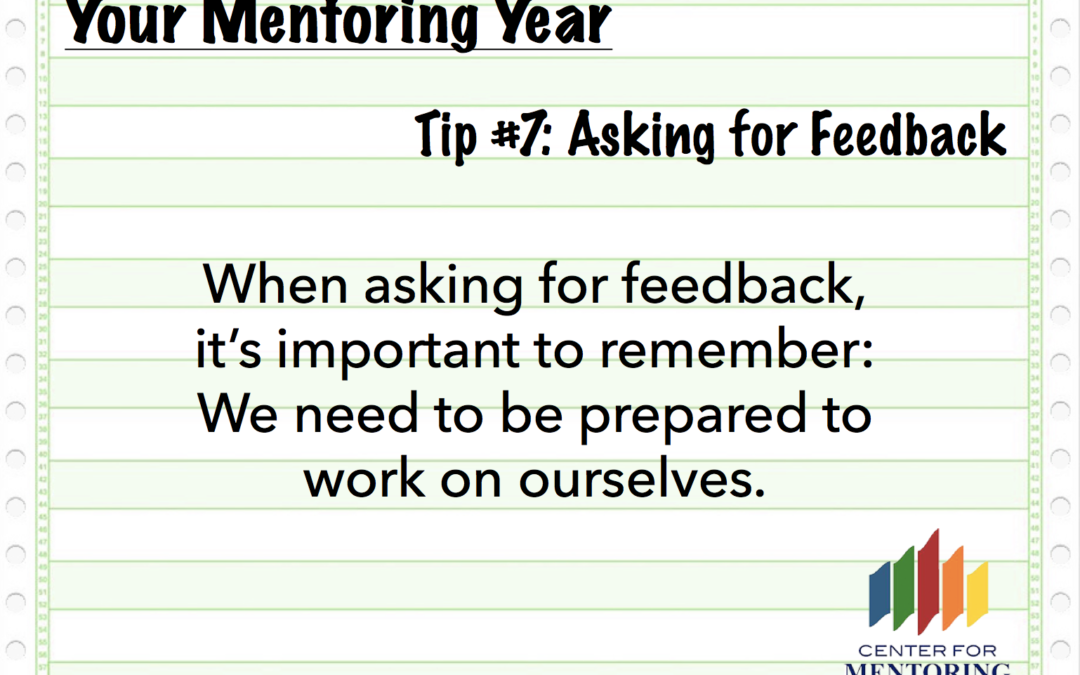
Your Mentoring Year Tip #7: Asking for Feedback
Imagine this scenario:
You are hidden in the cubicle next to your supervisor when a colleague drops by to ask her about your performance and contribution to her team. In your dream scenario, your supervisor raves about your work ethic, your analytic skills, your strong relationships with co-workers and members of the leadership team.
That, of course, is what you would like to hear! But in reality, do you have a real handle on what others would say about you? Do you know how your mentor might answer that question?
Managers wish employees would come to them to ask how are they are doing, and what specific areas they should work on. Mentors feel the same way. It’s a lot easier and more comfortable to provide feedback when a mentee seeks it out and is open to working on him or herself. While we all seek positive feedback, we also need to be open to hearing a frank assessment of what holds us back or gets in our way. And, most importantly, we need to be prepared to work on ourselves once an area has been identified.
Here are 5 tips in asking for feedback from your mentoring partner:
- Be clear and specific about what feedback you’re looking for. First, start on a positive note by asking about areas of strength. Then, ask about two areas your mentor feels you need to work on. (Two keeps it limited and doable.)
- Check for understanding (especially around constructive feedback) without getting defensive. If you are unaware of the issues your mentor is raising, ask for an example of where you fell short (again, without being defensive or aggressive). Make sure you agree on what behaviors would help correct deficiencies.
- End the conversation on a positive note. Thank your mentoring partner for their feedback.
- Take time to reflect on what you heard. Think about how the feedback you received might be impacting other areas of your personal and professional life. Set aside any negative feelings you have about what you heard by remembering that this feedback was designed to help you grow and develop.
- Address the areas that have been raised by taking action. Become more conscious about your behaviors and how they affect others and your work. Check in (but not too soon) with your mentor to determine if what you are doing differently is making a difference.
How do you like to ask for feedback?


